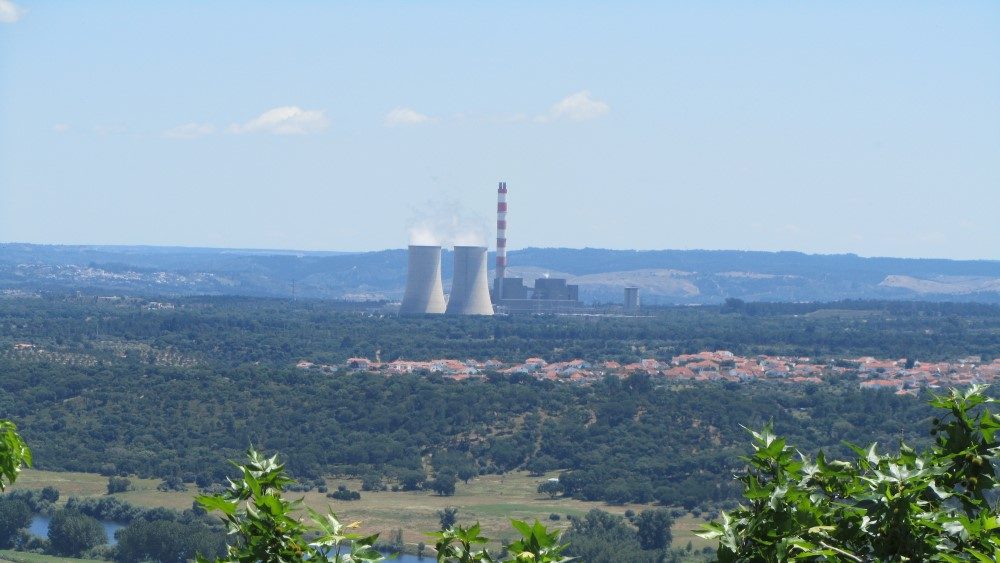Thermoelectric power plants emitted 4.8M tons CO2 in 2021, lowest since 1990
According to a joint statement from APREN and ZERO, the large thermoelectric power plants in Portugal emitted, in 2021, 4.8 million tons of carbon dioxide, the minimum since 1990.
APREN and the environmental association Zero estimate that the large thermoelectric power plants in Portugal emitted, in 2021, 4.8 million tons of carbon dioxide (CO2), the minimum since 1990.
According to a joint statement from the Portuguese Renewable Energy Association (APREN) and ZERO – Sustainable Earth System Association sent to Lusa, which the two entities release at the beginning of each year, with an analysis of the evolution of the main energy transition indicators, “2021 is a true record, estimating 4.8 million tons of carbon dioxide emissions by large thermoelectric power plants”.
According to the associations, between 2008 and 2018, the production of electricity from large thermoelectric power plants, was responsible for greenhouse gas emissions ranging between 10 and 17 million tonnes per year of carbon dioxide.
“With a greater weighting of renewable sources and less use of coal,” they explain, that figure had already fallen to 6.6 million tonnes by 2020.
The associations point out that 2021 was also marked by the closure of the last two coal-fired thermoelectric power plants, in Sines and Pego, with the natural gas combined-cycle plants of Lares, Pego, Ribatejo and Tapada do Outeiro remaining in operation.
“In total emissions, also including the production of electricity associated with cogeneration and burning of urban waste, APREN and Zero estimate a decrease from 8.3 to 6.2 million tons of carbon dioxide, a reduction in the order of 25%, a very significant ‘record’.
Road transport is now unequivocally the main source of carbon dioxide emissions in Portugal,” they say.
Thus, the reduction of emissions from coal-burning in 2021 was 1.4 million tonnes, but the associations believe that the figure was only not higher “because there was a need to use up practically all the existing coal at the Pego thermoelectric power station by November 2021”.
The “important milestones of the renewable sector” in 2021 resulted in “countless benefits for society, the economy and the environment”, they point out, highlighting the 11.6 million tonnes of CO2 emissions avoided, a saving in fossil fuel imports of €1.979 million, a saving in electricity imports of €599 million and a saving in CO2 emission licences of €553 million.
For the year that is beginning, APREN’s president, Pedro Amaral Jorge said, “In 2021 the first stone was laid of a new chapter of decarbonisation of the economy and society with the contribution of energy transition. With the foundation implemented, it is now necessary to operationalise the improvements and simplifications to the Licensing Process for Renewable Electricity Producing Centres, define a strategy for the RESP [Public Service Electricity Network] that allows true democratisation of electricity production with benefits for consumers, communities and companies, and implement the necessary conditions to accelerate energy transition”.
For his part, the president of Zero, Francisco Ferreira, considers “it is crucial to invest, as sustainably as possible, in the reduction of energy consumption, ensuring greater efficiency and in renewable energy sources implemented in a sustainable manner, ensuring new and more jobs and an effective decarbonisation”.


